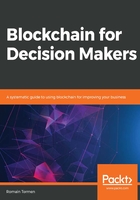
Truth in the network
Imagine a US Open final is happening next weekend between Roger Federer and Rafael Nadal. Being a big fan of Roger Federer and being sure he will win the game, Alice bets $10 on the betting website Betwin. On the other hand, Bob, who is an experienced gambler, thinks that Rafael Nadal will win. Bob decides to place a $10 bet on the Betwin platform on Rafael Nadal's victory.
Because Betwin is a private company, its objective is to maximize its profit. To do so, the company could tell Alice that Rafael Nadal won the game and tell Bob that Roger Federer won the game. In this manner, Betwin could hold both bets without having to pay either Alice or Bob.
Why is this method preposterous for Betwin?
The evident explanation is that Alice and Bob will not only believe Betwin to know the result of the game. They will check press releases, have a look at internet news, or ask their friends. And unless Betwin can make the press, the internet news, and Alice and Bob's friends announce the result that suits them best, their method will not work. In short, Alice and Bob do not trust only one third party, but instead, rely on the network to know the truth. And until there is no proof that Betwin controls the network, Alice and Bob will always know the truth.
The information added to the database is also checked with previous information already registered. In our example, Novak Djokovic cannot win the US Open final because there is information in the database stating that he already lost the previous round.
Let's move on to look at the various key roles within a blockchain network.